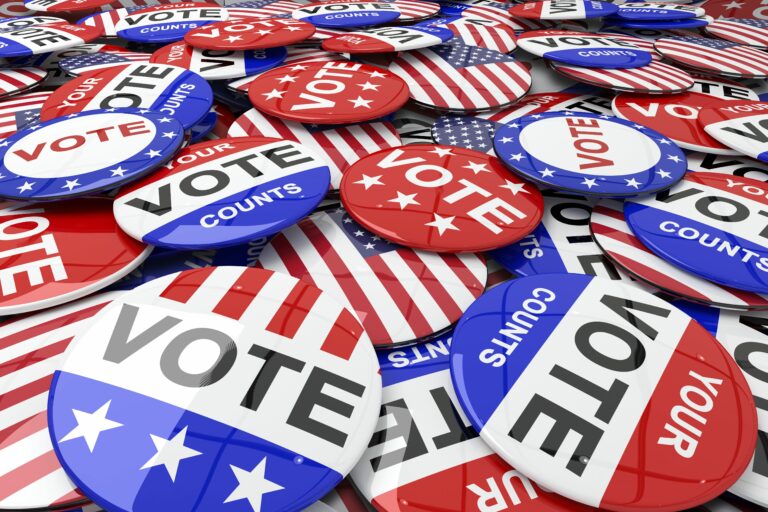
NORTH CAROLINA (11/27/2024) — On Tuesday, the North Carolina State Board of Elections unanimously certified the results of the 2024 General Election in North Carolina. The Board’s decision followed the completion of a thorough canvassing process, ensuring the accuracy and integrity of the election outcomes.
More than 5.6 million North Carolinians cast their ballots this fall out of 7.8 million registered voters. Statewide, more than 4.2 million voters cast their ballot ahead of Election Day (either by mail or in person during the early voting period), more than half a million more than in 2020, for an overall increase of 16 percent.
The State Board voted to canvass the votes cast and authenticate the ballot count for the 2024 General Election through a meticulous process that ensures the accuracy and fairness of our elections. Ten contests were not included in the canvass as counties continue conducting recounts to confirm these election results, which should be finalized by Wednesday. County boards convened on November 15, the 10th day after Election Day, and following the canvass, the State Board approved the official results on November 26.
This year, Democracy North Carolina, in partnership with Common Cause North Carolina, Southern Coalition for Social Justice, and North Carolina Black Alliance, hosted a comprehensive canvass monitoring program. The program trained over 270 canvass monitors to observe the final vote counts and assist voters during local boards of elections’ “Day of Canvass” and pre-canvass meetings in nearly 75 counties. Disability Rights NC, League of Women Voters, and You Can Vote also joined the efforts, deploying a significant number of canvass monitors across multiple counties in North Carolina.
The focus of this year’s canvass monitoring program was to ensure the newly enforced Voter ID law was uniformly implemented across all 100 counties and any provisional ballots cast had the opportunity to be thoroughly reviewed and accepted accordingly. Canvass monitors at various pre-canvass meetings were able to ensure every eligible vote counted, including, for example, in Alamance County, where board members were considering the acceptance of dozens of ID exception forms. One of our monitors noticed certain provisional ballots were being improperly considered and alerted the county board to the appropriate State Board guidance for approving ID exception forms when a voter marks their reason as “Other.” As a result, all provisional ballots cast with a truthfully completed ID exception form at this meeting were approved.
Election Protection volunteers also continued to answer voter questions at the nonpartisan voter hotline, 888-OUR-VOTE, as they arose following the election. Overall, the hotline received more than 6,300 calls in the weeks leading up to the election, with 1,489 on Election Day, as supported by 170 volunteers, making the hotline one of the most productive in the U.S.
“For hundreds of years, we have relied on the rigorous system of checks and balances in our election system to count and certify every vote, even in times of war and civil unrest. Voters decide who wins when they cast their ballots, then bipartisan election officials and observers count the ballots, double check voter eligibility, and verify the results. When we take the time to count every eligible vote, that’s how we know our democracy is working” said Cheryl Carter, Co-Executive Director for Democracy North Carolina.
“The official canvassing process in North Carolina demonstrates the commitment to ensuring that every vote is counted accurately and fairly. Our statewide canvass monitoring program has played a crucial role in ensuring the uniform implementation of the Voter ID law and the thorough review of provisional ballots.” said Jeff Loperfido, Chief Counsel for Voting Rights for Southern Coalition for Social Justice.
“It is imperative that every vote cast in our elections is accurately accounted for. This collaborative statewide effort aided greatly in our ability to do just that. Having a diverse coalition of organizations and volunteers working in lockstep to support our collective commitment to a fair democracy provides us with the additional assurance that every eligible voter’s voice will be heard in our elections.” said Dr. Jovita Lee, Program & Policy Director for North Carolina Black Alliance.
###
Democracy North Carolina is a statewide nonpartisan organization that uses research, organizing, and advocacy to increase civic participation, reduce the influence of big money in politics, and remove systemic barriers to voting and serving in elected office. Learn more at democracync.org.
Southern Coalition for Social Justice, founded in 2007, partners with communities of color and economically disadvantaged communities in the South to defend and advance their political, social, and economic rights through the combination of legal advocacy, research, organizing, and communications. Learn more at southerncoalition.org and follow our work on Facebook, Instagram, and LinkedIn.
Common Cause North Carolina is a nonpartisan, grassroots organization dedicated to upholding the core values of American democracy. We work to create open, honest, and accountable government that serves the public interest; promote equal rights, opportunity, and representation for all; and empower all people to make their voices heard in the political process. Online: CommonCauseNC.org
North Carolina Black Alliance works toward state-level systemic change by strengthening the network of elected officials representing communities of color throughout the state and collaborating with progressive, grassroots networks on intersecting issues. Learn more at ncblackalliance.org